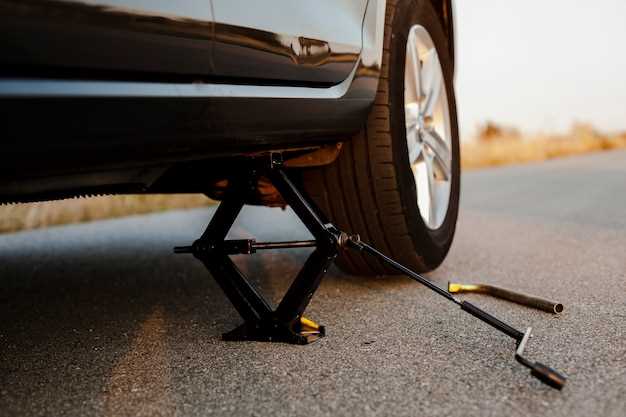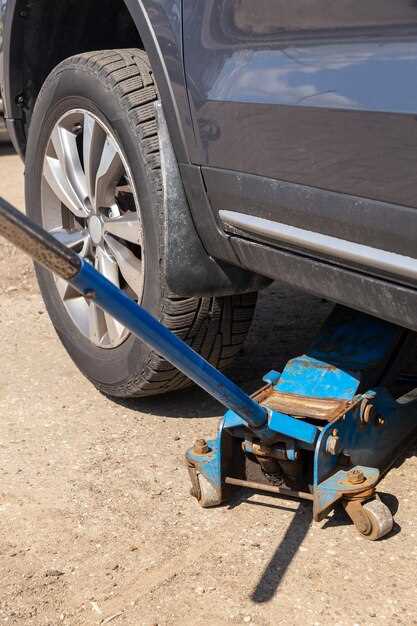
When it comes to transporting heavy loads, the importance of a reliable trailer jack cannot be overstated. Whether you are a professional hauler or an occasional user, having the right equipment can significantly ease the loading and unloading process. A quality trailer jack provides the necessary support to lift and stabilize your trailer, ensuring a smooth operation every time.
In this article, we will explore the best trailer jacks available on the market, focusing on their features, benefits, and suitability for various types of trailers. From manual to electric options, understanding the different types of trailer jacks will help you make an informed decision that caters to your specific loading needs.
The right trailer jack can enhance your efficiency and safety during transport. We will delve into key aspects such as weight capacity, ease of installation, and mobility, ensuring you choose a jack that not only meets your requirements but also simplifies your loading solutions. Let’s take a closer look at the top contenders in this essential category of trailer accessories.
Choosing the Right Trailer Jack for Your Vehicle

Selecting the appropriate trailer jack is crucial for ensuring the safety and stability of your trailer during loading and unloading. A well-chosen jack provides the necessary support, making your tasks easier and more efficient.
First, consider the weight capacity of the trailer jack. Each jack has a specific weight rating, which should match or exceed the weight of your fully loaded trailer. For example, if your trailer weighs 3,000 pounds when loaded, you should choose a jack rated for at least that weight, ideally with a buffer to account for any additional gear.
Next, think about the type of trailer you have. Different trailers require different jacks. For instance, a boat trailer may require a different design than a utility trailer. Make sure to select a jack that suits the specific needs of your trailer type while providing adequate support for safe operation.
Another key factor is the mounting style of the trailer jack. There are typically two types: side-mounted and front-mounted. Side-mounted jacks are often more convenient if you have limited space, while front-mounted versions are easier to access for operation and storage. Consider where the jack will be used and choose accordingly.
Additionally, look for features that enhance the usability of the trailer jack. Some jacks come with wheels for mobility, while others might offer a quick-release mechanism. Features like these can significantly simplify the loading process, allowing for more efficient handling of your trailer.
Finally, don’t overlook the importance of durability. Trailer jacks are exposed to various weather conditions and heavy use, so selecting a jack made from high-quality materials can prolong its lifespan and ensure reliable performance over time.
By taking these factors into account, you can choose the right trailer jack that meets your vehicle’s needs, provides the necessary support, and streamlines your loading process.
Top Features to Look for in a Reliable Trailer Support

When selecting a trailer jack, it’s essential to consider several key features that ensure reliable support and enhance overall functionality. Highlighted below are the most important features to keep in mind.
Weight Capacity: One of the primary features to evaluate in a trailer jack is its weight capacity. Choose a jack that can handle the maximum weight of your trailer, accommodating for additional cargo. This ensures stability and prevents potential accidents during loading and unloading.
Material Quality: The material from which the jack is made can significantly impact its durability and resistance to corrosion. Look for jacks constructed from high-strength steel or aluminum, as these materials provide excellent support while withstanding harsh environmental conditions.
Ease of Use: A reliable trailer support should be user-friendly. Features such as a smooth crank system or a hydraulic lift mechanism can greatly enhance your loading experience, making it easier to adjust the height and position of the trailer.
Stability and Safety Features: Ensure that the jack includes safety features like a locking mechanism to prevent accidental lowering. Additionally, a wide base or stabilizing legs can provide extra support, reducing the risk of tipping during operation.
Portability: If you’ll be moving your jack frequently, consider its weight and design. Compact and lightweight options can offer convenience without sacrificing support, allowing for easy transport and storage.
Versatility: Some trailer jacks come with adjustable height settings or multipurpose designs. This versatility can enhance their utility, allowing them to be used for different types of trailers or loads.
By focusing on these essential features when choosing a trailer jack, you can ensure that you select a reliable support system that meets your needs and enhances your loading solutions.
Maintenance Tips to Extend the Life of Your Trailer Jack
Maintaining your trailer jack is essential to ensure its longevity and optimal performance. Regular upkeep can prevent common issues and enhance the efficiency of loading and unloading your trailer. Here are some practical maintenance tips:
1. Clean Regularly: Dirt and grime can accumulate on your trailer jack, leading to corrosion and reduced functionality. After each use, wipe down the jack with a clean cloth to remove any debris. For deeper cleaning, use soapy water and a soft brush to get into crevices, then rinse and dry thoroughly.
2. Lubricate Moving Parts: Proper lubrication is vital for the smooth operation of the jack. Inspect all moving components and apply a suitable lubricant to prevent wear and tear. Be sure to use a product that is compatible with the materials used in your trailer jack.
3. Inspect for Damage: Regularly check your jack for signs of wear or damage, such as rust, cracks, or bending. Address any issues immediately to avoid further degradation. If any crucial components are damaged, consider replacing them promptly to maintain safety and functionality.
4. Store Properly: When not in use, store your trailer jack in a dry, sheltered space. Protecting it from harsh weather conditions can significantly extend its life. If possible, use a cover to shield it from moisture and UV exposure.
5. Test it Periodically: Conduct routine tests of your trailer jack to confirm it operates correctly. Check the locking mechanisms and ensure it raises and lowers smoothly. Regular use also helps identify potential issues before they become significant problems.
6. Follow Manufacturer’s Guidelines: Always refer to the manufacturer’s instructions for specific maintenance recommendations. Adhering to their guidelines will provide tailored advice suited to your particular trailer jack model.
By implementing these maintenance practices, you will not only enhance the lifespan of your trailer jack but also ensure safer and easier loading solutions for your trailer needs.





